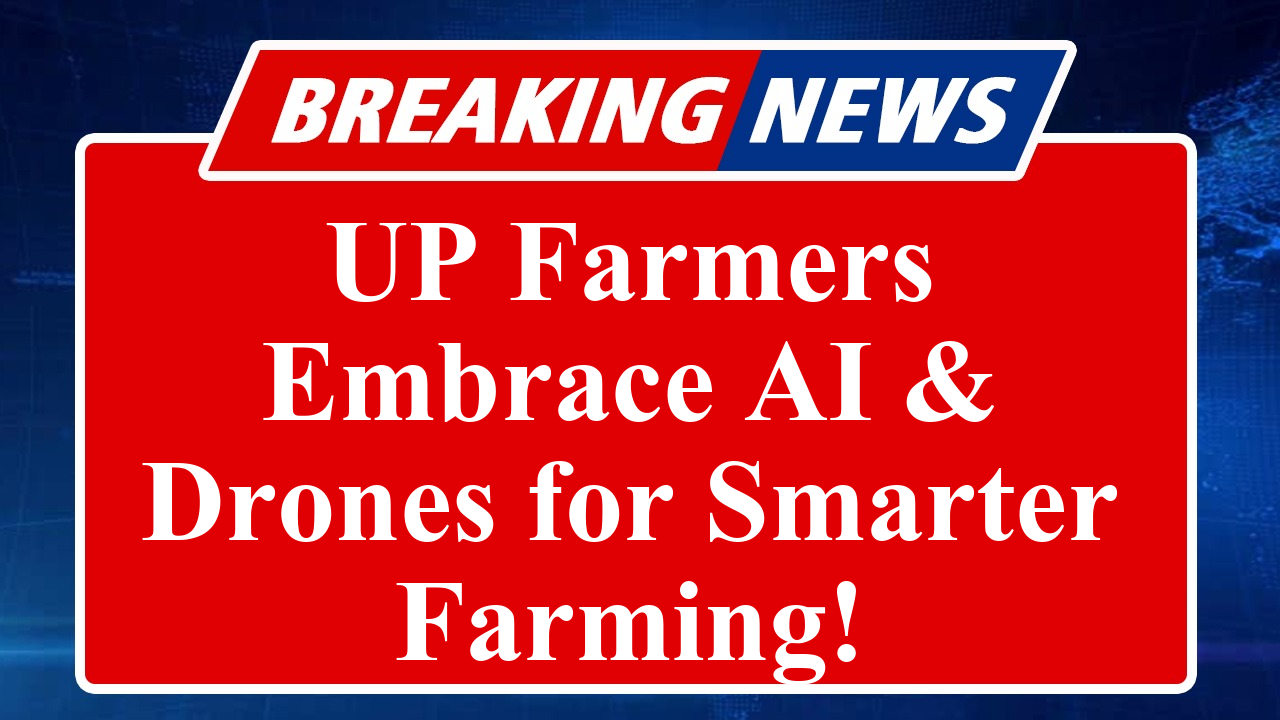“Uttar Pradesh is revolutionizing farming with new agri-tech workshops, equipping farmers with advanced techniques like AI, drones, and precision farming. Backed by the state government and ICFA, AgroTech 2025 aims to boost productivity and sustainability. Over 10,000 farmers will gain hands-on training, fostering innovation and economic growth in India’s agricultural heartland.”
Uttar Pradesh Pioneers Agri-Tech Training for Farmers
In a bold move to transform agriculture, Uttar Pradesh has rolled out a series of advanced agri-tech workshops under the AgroTech 2025 initiative, supported by the state government and the Indian Council of Food and Agriculture (ICFA). These workshops, launched in collaboration with the Indian Institute of Sugarcane Research in Lucknow, aim to empower farmers with cutting-edge technologies to enhance productivity, sustainability, and profitability in farming.
The workshops, which commenced in July 2025, are designed to reach over 10,000 progressive farmers across the state, offering hands-on training in modern farming techniques such as artificial intelligence (AI), drone technology, satellite-based precision farming, and sustainable practices like agroforestry and carbon farming. The initiative aligns with the Government of India’s push for digital agriculture, including the AgriStack initiative, which seeks to create a digital ecosystem for farmer-centric solutions.
A key highlight of the workshops is the integration of AI-powered advisory platforms, enabling farmers to access real-time data on crop health, soil moisture, and weather patterns. For instance, platforms like Farmonaut leverage satellite imagery and IoT devices to provide actionable insights, helping farmers optimize irrigation and fertilizer use while reducing crop losses. Drones, a focal point of the training, are being promoted for tasks like aerial planting, pesticide application, and remote data collection, with financial incentives of up to INR 4 lakh for drone purchases by Farmer Producer Organizations (FPOs) and rural entrepreneurs.
The state’s collaboration with global institutions like the University of California and Michigan State University brings international expertise to the program. Farmers are also introduced to blockchain technology for supply chain transparency and digital record-keeping for organic certification, addressing the growing demand for chemical-free produce in domestic and export markets. States like Uttar Pradesh and Sikkim are leading the organic farming revolution, with the workshops emphasizing sustainable practices to boost biodiversity and soil health.
AgroTech 2025 includes farmer field schools and workshops in Hindi, ensuring accessibility for rural farmers. Topics covered range from mechanization and post-harvest management to market linkages via platforms like the National Agricultural Market (e-NAM). The Uttar Pradesh Agriculture Development Meet, held alongside the workshops, facilitates discussions between farmers, policymakers, and industry leaders to explore investment opportunities in horticulture, dairy, and biotechnology.
The initiative has already shown promise, with early adopters reporting improved yields and reduced input costs. For example, farmers trained in precision agriculture techniques have optimized water usage by 20% through targeted irrigation, according to data from the Indian Council of Agricultural Research (ICAR). The state government’s Exposure Visit Scheme further encourages participation by mobilizing farmers from across Uttar Pradesh and neighboring states.
With India’s agri-tech sector projected to reach $34 billion by 2027, Uttar Pradesh’s workshops are a critical step toward positioning the state as a hub for agricultural innovation. The program not only equips farmers with tools to combat climate challenges but also fosters entrepreneurship, with training on establishing profitable farms and leveraging government schemes like the Agriculture Infrastructure Fund (AIF), which has supported over 18,000 projects nationwide.
Disclaimer: This article is based on recent reports, government announcements, and insights from agricultural organizations like ICFA and ICAR. Information is sourced from publicly available data and industry updates. Readers are advised to verify details with official sources for the latest updates.

